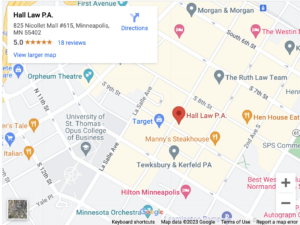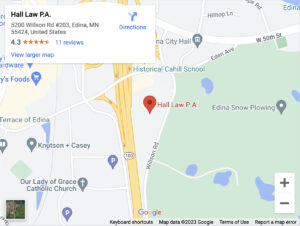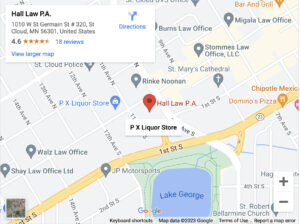
Whether a case is settled or tried, there are essentially two types of damages awarded in a personal injury lawsuit: compensatory and punitive. The purpose of compensatory damages is to place the injured party (plaintiff) in the same position monetarily as if the injury had never occurred, and punitive damages are awarded to punish the defendant (at-fault party).
Compensatory Damages
Compensatory damages are awarded in almost any personal injury claim. They provide reimbursement for both economic and non-economic losses. Common examples of economic losses include:
- Medical bills and injury-related expenses: (For past, current, and future care)
- Lost wages: Past, current, and future income you will lose while recovering.
- Property damage:
- Legal fees
Non-economic losses are caused by the at-fault party’s negligence, but they are subjective and not easily calculable. For example:
- Pain and suffering
- Emotional distress
- Loss of enjoyment of life
- Loss of consortium or damage to a relationship with spouse or children
Compensatory damages are the most common form of compensation awarded in personal injury cases.
Punitive Damages
Punitive damages are not as common and only awarded in cases where the court feels that the defendant was particularly reckless or exhibited egregious conduct. The court will review two factors when determining whether punitive damages should be granted:
- The reprehensibility of the defendant’s conduct, and
- What amount of money is necessary to have a deterrent effect on the defendant considering their financial circumstance.
Examples of the types of cases where punitive damages are often awarded include drunk driving accidents or medical malpractice cases involving extreme negligence, such as a surgeon operating on the wrong body part. Minnesota does not place a cap on punitive damages, so it is up to a jury or judge to decide the amount that is fair.
What is the Intent of Compensatory & Punitive Damages?
Compensatory damages are intended to make an injured party whole. The victim should receive enough money to reimburse the costs associated with their injuries. Punitive damages, on the other hand, are occasionally awarded in addition to compensatory damages. However, punitive damages are meant to punish the defendant and can be quite costly. They are also awarded with the hope that it will deter others from similar behavior.
Can Attorneys Help Recover More Damages Compared to an Insurance Offer?
One critical factor to recovering fair compensation is whether you hire an attorney. Studies show that injury victims represented by an attorney recover three and a half times more in compensation than those who through the insurance claims process alone.
Insurance companies can be difficult to work with. If you handle your case alone, the insurance adjuster will know there is no threat of a lawsuit and may try to shift the blame on you to avoid liability or reduce your payment.
When a lawyer represents you, it motivates an insurance company to take your claim seriously and offer you or agree to a fair settlement. Over 95% of civil cases settle because insurers would much rather avoid trial.
Contact the Minnesota Personal Injury Law Firm of Hall Law Personal Injury Attorneys For Help Today
For more information, please contact an experienced personal injury lawyer at Hall Law Personal Injury Attorneys to schedule a free initial consultation today. We have three convenient locations in Minnesota, including Minneapolis, St. Cloud, and Edina.
We proudly serve Hennepin County, Stearns County, and its surrounding areas:
Hall Law Personal Injury Attorneys – Minneapolis
825 Nicollet Mall, Suite 615
Minneapolis, MN 55402
(800) 292-1979
Hall Law Personal Injury Attorneys – St. Cloud
1010 W St Germain St # 320
St Cloud, MN 56301
(320) 255-1000
Hall Law Personal Injury Attorneys – Edina
5200 Willson Rd #203
Edina, MN 55424
(952) 697-5560



